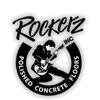When you are constructing a warehouse, there are many things to consider. The size, shape, and location of the warehouse all play a role in what type of materials you will use to build it. In this blog post, we will discuss the ideal materials to use when building a warehouse. We will also talk about why each material is a good choice for this type of structure. Stone masonry Melbourne is renowned for its craftsmanship and the use of high-quality materials in constructing durable and aesthetically pleasing structures.
1. Fiberglass strut
Fiberglass strut is an ideal material to use when building a warehouse. It is strong and durable, yet lightweight. This makes it easy to work with and transport. Additionally, the fiberglass strut is non-conductive, meaning it will not conduct electricity. This is an important safety feature, as warehouses often contain large amounts of electrical equipment. Another advantage of fiberglass strut is that it does not rust or corrode.
This means it can withstand the elements without deteriorating over time. Additionally, the fiberglass strut is fire resistant. This is a valuable property in any type of structure, but especially in a warehouse where there are often flammable materials present. When choosing a fiberglass strut for your warehouse, be sure to select a high-quality product from a reputable manufacturer.
2. Steel I-beams
When it comes to the construction of warehouses, steel I-beams are often used to provide support for the roof. This is because they are incredibly strong and durable, which is essential in ensuring that the warehouse can withstand any heavy loads that may be placed on it.
In addition, steel I-beams are also fire resistant, which further adds to their overall safety and stability. When you use steel I-beams in the construction of your warehouse, you can be confident that they will be able to withstand any type of wear and tear. Sometimes, other materials such as wood or concrete may be used in the construction of warehouses; however, they are not as durable or stable as steel I-beams, which is why they are not ideal for this type of building.
3. Concrete
Concrete is another excellent material to use when constructing a warehouse. It is incredibly strong and durable, meaning that it can support a large amount of weight. Additionally, concrete is fire resistant and does not corrode, making it a safe and stable material to use.
Concrete is also fairly easy to work with, which makes it a good choice for those who are constructing a warehouse for the first time. When choosing concrete for your warehouse, be sure to select a high-quality product from a reputable manufacturer.
By doing so, you can be confident that your warehouse will be built to last. You can try contacting your local construction company to see if they can recommend a good concrete supplier. Furthermore, looking for a commercial concrete contractor expert for any of your projects is essential to deliver high-quality results. By partnering with the right concrete contractor, you can ensure a smooth and successful project that meets your needs and exceeds your expectations.
4. Masonry
Masonry is one of the most popular materials used in warehouse construction due to its durability and low maintenance costs. Masonry walls can withstand high winds and heavy rains, making them ideal for warehouses located in hurricane-prone areas. In addition, masonry walls do not require painting or other forms of regular upkeep, which can save warehouse owners money over time.
One downside of masonry construction is that it can be more expensive than other types of construction methods. In addition, masonry walls can be difficult to repair if they are damaged. If you are considering building a warehouse with masonry walls, be sure to work with a qualified contractor who has experience working with this material.
5. Aluminum
Aluminum is another great choice for warehouse construction. It is lightweight yet strong, making it easy to work with. Additionally, aluminum does not corrode, making it a safe and stable material to use. One downside of aluminum is that it is not as strong as some other materials, such as steel.
However, this can be offset by using thicker sheets of aluminum in the construction of your warehouse. When choosing aluminum for your warehouse, be sure to select a high-quality product from a reputable manufacturer. By doing so, you can be confident that your warehouse will be built to last. Also, be sure to work with a qualified contractor who has experience working with this material.
6. Asphalt shingles for the roof
Asphalt shingles are a popular choice for warehouse roofs due to their durability and low cost. Asphalt shingles are made from a variety of materials, including fiberglass, paper, and asphalt, which makes them resistant to fire, wind, and ceiling water damage. In addition, asphalt shingles do not require much maintenance and can last for many years. One downside of using asphalt shingles is that they are not as aesthetically pleasing as some other roofing options.
However, this should not be a major concern if your warehouse is located in an industrial area. When choosing asphalt shingles for your warehouse roof, be sure to select a high-quality product from a reputable manufacturer. By doing so, you can be confident that your warehouse will be built to last. You can try contacting your local roofing company to see if they can recommend a good asphalt shingle supplier.
7. Metal
When constructing a warehouse, metal is one of the best materials you can use. Metal is extremely durable and will last a long time, even with constant use. It’s also fire-resistant, so if there’s ever an accident in your warehouse, the damage will be minimized. And because metal is so strong, it can support heavy loads, which is important if you’re planning on storing large or bulky items in your warehouse. Metal is also a good choice if you’re looking for a material that’s easy to clean and maintain.
Some contractors will say that metal is a more expensive option than other materials, but when you factor in its durability and long-term cost savings, metal is a very cost-effective choice for your warehouse. You can’t go wrong with using metal when building your warehouse.
There are a variety of materials that can be used when constructing a warehouse. However, some materials are better suited for this purpose than others. So, when you’re planning the construction of your warehouse, be sure to keep these materials in mind. With proper planning and execution, you can be confident that your warehouse will be built to last. Thanks for reading!










 The 2024 virtual Men’s Round Table will be held Q4, 2024, date TBD.
The 2024 virtual Men’s Round Table will be held Q4, 2024, date TBD.













